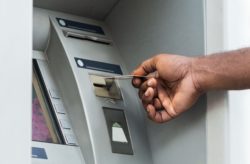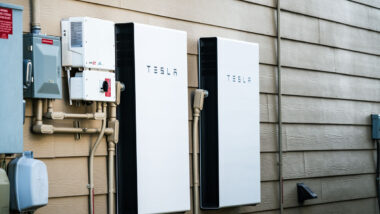Top Class Actions’s website and social media posts use affiliate links. If you make a purchase using such links, we may receive a commission, but it will not result in any additional charges to you. Please review our Affiliate Link Disclosure for more information.
Every penny counts, especially during times of financial and economic uncertainty. In the wake of the coronavirus pandemic, a big chunk of the population is looking for ways to cut costs and save some money.
Taking steps to avoid unnecessary expenditures, like paying credit union ATM fees, especially fees that are charged illegally, is one way to do that.
What Are Credit Union ATM Fees?
Credit unions provide banking services such as checking and savings accounts, loans and debit cards. Unlike banks, credit unions are not-for-profit organizations made up of members who control them. The members have a shared bond. They either work for the same company, belong to the same group or are members of the same family, for example.
A credit union’s profits are returned to its members through things like reduced fees – including ATM fees – and better interest rates, according to the National Credit Union Administration’s online guide to credit unions.
Credit unions have a small market share when it comes to banking in the U.S. – a little more than 6% – but they have a lot of customers.
According to the National Credit Union Administration, some 120 million people belonged to one of 5,300 federally insured credit unions in operation in 2019, the most recent statistics available. Membership increased more than 2,800% over the previous five years.
ATM fees are surcharges added to transactions completed at automatic tellers. Credit unions and banks operate ATMs, as do independent automatic teller companies. All can charge fees for their use and the amount of those fees varies.
Do Credit Unions Charge ATM Fees?
Every credit union is governed by the rules its members make, meaning there are no universal policies when it comes to charging ATM fees. Almost all offer their customers free 24-hour access to accounts at ATMs, namely their own, according to consumer banking information website Find a Better Bank. The majority of ATM fees are charged when customers use out-of-network machines.
Are Credit Union ATM Fees Legal?
Credit union ATM fees are legal if properly disclosed to customers. Otherwise, they are considered hidden fees and may be illegal.
The Electronic Fund Transfer Act requires credit unions to inform consumers, in writing, of all fees they will be charged and they must do so prior to assessing the fees. ATM usage fees must also be disclosed to customers on the ATM screen before a fee can be charged, giving the customer the option of declining to proceed, as explained by online financial resource website Debt.org.
How to Avoid ATM Fees

To begin with, using an ATM within a credit union’s network usually means members won’t be charged a fee. Customers can check their credit union website or mobile app, or call for a list of ATMs they can use for free.
They can also choose a credit union, or a particular kind of account at their credit union, that offers ATM fee reimbursements. Some offer a full refund, while others will rebate up to a certain amount or number of transactions per month, according to Nerd Wallet. Knowing the options can help consumers choose which credit union best suits their needs.
Another strategy is to get cash back is during another retail transaction, like buying groceries. Many national retailers, and even a considerable number of midsize regional chain stores, offer buyers the option of getting cash back at the counter during checkout when they use their debit cards with no fee.
ATM Fees Not Always Avoidable
While it’s wise to avoid paying bank or credit union ATM fees if you can, emergencies do arise. If there’s no in-network ATM around and you must withdraw cash from a non-network ATM, you may want to withdraw as much cash as you can because you will pay the same fee no matter how much cash you take out. That way, if you end up needing more money than you originally believed, you won’t be stuck paying yet another ATM fee later that day.
SmartAsset reports that a 2017 Bankrate report determined the average fee for taking money from a non-network ATM machine was $4.69. In addition, your own bank might charge an additional fee if you use an ATM that’s not within network; this type of fee averaged $1.72 per transaction, an increase of 3% over the year prior.
Although some financial advisers suggest saving on ATM fees by getting cash back when you buy groceries, however, you may be surprised to learn even that transaction may come with a fee. At least one Arizona grocery store began adding a fee for customers choosing cash back during their transaction, no matter how much you spend on groceries. If you wish to obtain cash back at this particular grocery store, you will pay a fee ranging from $.50 to $4, depending on the amount of cash you need.
Lower ATM Fees Recorded for First Time in Over a Decade
Bank and credit union ATM fees have reportedly been lowered for the first time in 15 years. According to CBNC’s Make It, the fee reduction is due to temporary fee waivers many financial institutions have implemented in the face of the continuing coronavirus pandemic. The Sarasota Herald-Tribune reports that 35% of accounts now offer free out-of-network ATM withdrawals.
Make It reports that out-of-network ATM fees fell from $4.72 in 2019 to $4.64 in 2020, based on research conducted by Bankrate. Bankrate looked at fees financial institutions charge non-customers to use their ATMs —an average of $3.08 this year—and fees customers pay to use other institutions’ ATMs, currently an average of $1.56.
According to Citizens’ Voice, the continuing coronavirus pandemic has led some businesses to go cashless, removing the need for ATMs and the associated fees. Reportedly, some businesses say that forgoing cash allows them to be more efficient. However, some businesses say the merchant fees they pay for customers to use credit cards is too much – reportedly up to 3% of a total purchase in some cases.
While ATM fees may have dipped, Newsweek reports that other bank and credit union fees have skyrocketed. According to the most recent data, consumers overdraft fees average $33.47, compared to $33.36 in 2019. There was also a reported increase in the minimum checking balance required for checking accounts to remain fee-free, from an average of $7,123 in 2019 to $7,550 in 2020.
Should I File a Lawsuit for Unlawful ATM Fees?
Customers who have been charged credit union ATM fees without being notified in compliance with the Electronic Fund Transfer Act, or who have been charged in error and whose credit union has not corrected that error, may have grounds for legal action.
What Damages Can I Receive?
Violations of the Electronic Fund Transfer Act can result in fines for a credit union found responsible and, through litigation, customers can be awarded damages for the infractions. The damages can be to compensate a customer’s personal losses and/or as a punitive measure against the credit union or financial institution.
Join a Free ATM Fees Class Action Lawsuit Investigation
If you were charged ATM fees without notification when you used an ATM machine, you may qualify to join this ATM fees class action lawsuit investigation.
This article is not legal advice. It is presented
for informational purposes only.
ATTORNEY ADVERTISING
Top Class Actions is a Proud Member of the American Bar Association
LEGAL INFORMATION IS NOT LEGAL ADVICE
Top Class Actions Legal Statement
©2008 – 2024 Top Class Actions® LLC
Various Trademarks held by their respective owners
This website is not intended for viewing or usage by European Union citizens.
















3 thoughts onHow Can I Avoid Credit Union ATM Fees?
add me
add me
add me please